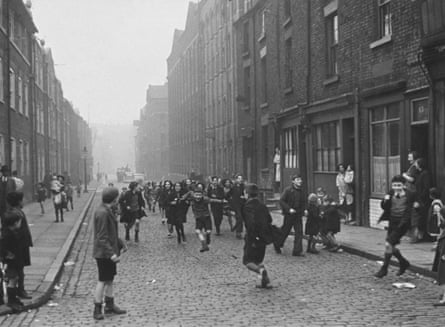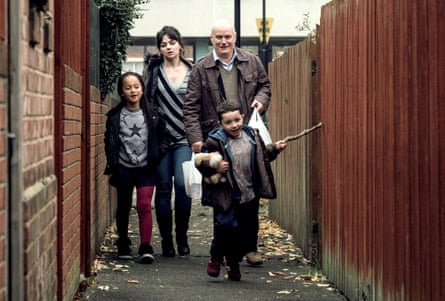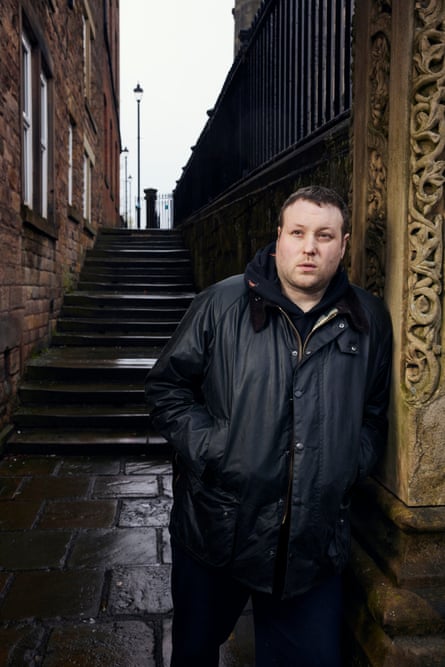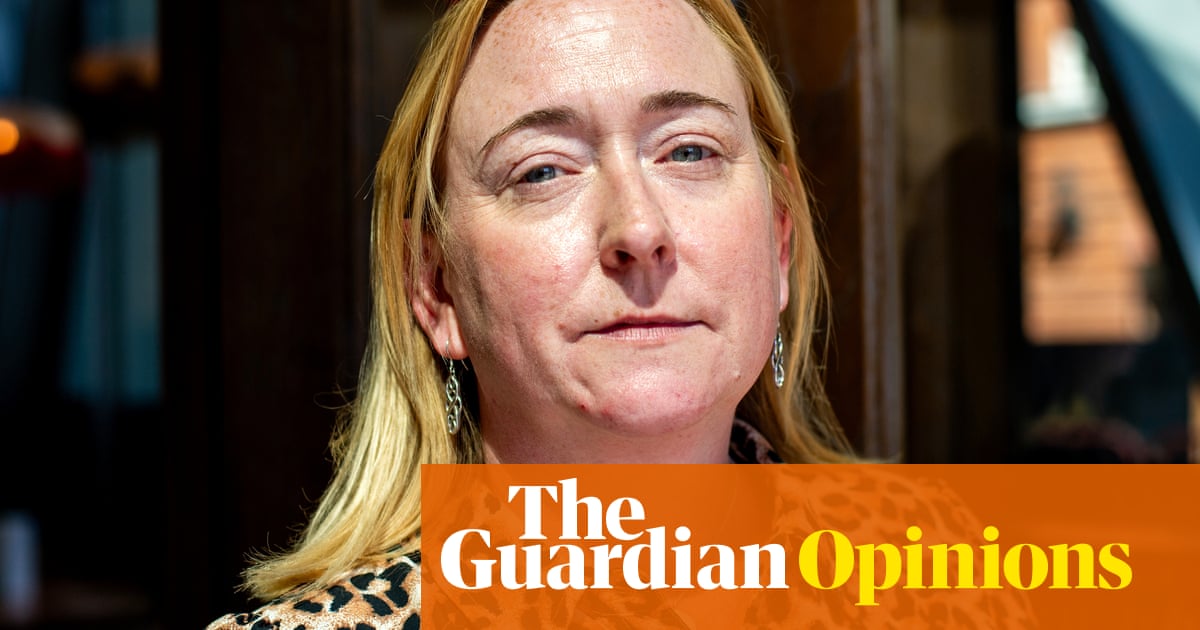I have been obsessed with and confused by social class all my life. Both of my grandparents grew up in Liverpool in the 1930s in traditionally working-class households. They were clever and conscientious and managed to earn scholarships to university, eventually becoming teachers. My parents have university degrees and own property; one of them is now a judge. To most people, all these things place me squarely and categorically in the middle class. But I was in special educational schools from the age of nine, spent part of my childhood in care, left education altogether at 14 and collected the dole until getting my first job in a cotton mill. All these things make me a dyed-in-the-wool prole.
And yet I have two degrees, I have written two books and I freelance for the Guardian – you can’t get more insufferably bourgeois than that. At the same time, I am pushing 40 and living with my mum because I can’t afford to rent anything larger than a broom cupboard, so I feel as though I am in class limbo – fitting in with everyone and no one at the same time.
I am instinctively opposed to the idea of social class: organising people into strata, like specimens in a laboratory, feels inhuman. It’s divisive by definition. I am also confused. Part of this is due to the idea that social class is an immutable, inherited characteristic: you are born into a class and you die in the same class. This explains why Britain’s deputy prime minister, Angela Rayner, still thinks she is one of the hoi polloi. In September, after the rightwing press went into meltdown when a video emerged showing Rayner dancing next to a DJ on a night out in Ibiza, Rayner hit back: “I’m working class, I like a dance.”
In 2016, Sir Alan Sugar – an actual knight – described himself in the Sunday Times as “a working-class Jewish boy from the East End, the son of a factory tailor who never knew where his next day of work was coming from”. Surely, one of the reasons the class system is referred to as a social ladder is that people can climb up it and fall off it. Sugar was a billionaire when he made those remarks. He reached the top a long time ago.

I have always intuited class by superficial markers such as accent, clothes, address, possessions and wealth. I even make judgments based on people’s diets. If you are partial to pie, chips ’n’ gravy, then I think there is a good chance you own a white van, read red-top tabloids and are on first-name terms with your bookie.
Aware that this was prejudice and almost certainly wrong, I read some of Karl Marx’s work for the first time. That left me even more confused. His magnum opus, Capital, for instance, is dense with esoteric terms such as “dialectical materialism” and “base and super structure” and is entrenched in the squabbles of the Victorian era. I am not clever or well read enough to understand it all. Passages like this don’t help: “Criticism has plucked the imaginary flowers from the chain, not so that man will wear the chain that is without fantasy or consolation, but so that he will throw it off and pluck the living flower.” According to academics, Marx was referring to the pacifying nature of religion. I’ll have to take their word for it.
I decided to get in touch with the film-maker Ken Loach to see if he could clear all this up. Class – and class warfare – have been at the heart of Loach’s work since the 1960s. In his harrowing 2016 movie I, Daniel Blake, the protagonist finds himself caught in a nightmarish catch-22. After having a heart attack, he is too sick to work, but not sick enough to qualify for sickness benefits. He is penalised by a string of jobsworths enforcing a ludicrous bureaucracy designed to punish people for the crime of unemployment. Three years later, in Sorry We Missed You, Loach highlighted zero-hours workers’ lack of rights.
“I suppose that has been the essence of what we’re trying to do in our films over many years,” Loach says. “To tell stories that are consistent with that idea of the fundamental conflict between two classes, in which one exploits the labour of the other and they have conflicting interests. That inherent conflict of interest is at the heart of our politics, at the heart of our society.”

Loach sees social class in simple Marxist terms: “I think they hold up today more than ever before. If you are paid less than the value you contribute to whatever is produced, then someone is making money from you.” You could call this “extracting surplus value”, or simply profiteering.
Loach explains that the interests of the owners of production (the bourgeoisie, in Marxist terms) are in conflict with those of the working class (the proletariat). “From the employer’s point of view, the business will succeed if it makes a profit – it will attract more investment and be able to expand.” The working classes, meanwhile, want to secure a wage that provides a decent standard of living: “A life of dignity with the ability to enjoy the good things as well as not having to work all hours”.
As I see it, the problem with the Marxist definition of class is that a cleaner on a zero-hours contract shares the same class as a Premier League footballer because both are paid a wage. A high court judge is in the same social class as a shelf stacker. How can someone who is merely subsisting be in the same class as someone living the life of Riley?
I put it to Loach that people would see a class distinction between a teacher and the dinner ladies at a secondary school. “Our social structure is full of contradictions,” he says. “For example, people at the top of their skills, like Premier League footballers, can command very high wages, yet the owners of their clubs still make a profit from them through merchandise.”
As for judges, Loach points out that they are public servants appointed by the state and paid by our taxes: “They are seen as representing both the principles of equality before the law, but also the interests of property, which reflect the position of the ruling class and which are endorsed by the state itself. The point is there are an almost infinite number of social distinctions, which makes any definition of class based on them impossible.”
In 2011, the BBC attempted the “impossible” when it launched the Great British Class Survey, stating: “Traditional British social divisions of upper, middle and working class seem out of date.” The BBC teamed up with the sociologist Prof Mike Savage and a group of his colleagues at the London School of Economics to try to bring the idea of class into the 21st century. After surveying 161,000 people, Savage and his team proposed seven classes: the elite, the established middle class, the technical middle class, new affluent workers, the traditional working class, emergent service workers and the precariat.
I fed the BBC’s online survey my details, including salary, housing situation and interests. My result: precariat. The lowest on the totem pole. Then I did the test again. This time, I fessed up to going to the gym, listening to classical music and enjoying the theatre, as well as playing video games and watching football. I experienced rapid social mobility, ending up as an emergent service worker – and even more confused.
Another person confused by the calculator is Dr Dan Evans, a sociologist at Swansea University. Growing up in Porthcawl, south Wales, he found himself in class limbo. He describes his mother’s side of the family as “solidly middle class”: his maternal grandparents were teachers and came from “a nice middle-class suburb in Cardiff”. Meanwhile, he says, “my dad comes from what I would call a straightforwardly working-class background. My old man was a steelworker and then he retrained to be a teacher. I had a foot in both camps growing up.”

In his book A Nation of Shopkeepers, Evans wrote that the Great British Class Survey confuses “cultural and regional variations within the same class for separate classes”. He argued that he is not an emergent service worker, middle class or working class. He and his mates back home are members of the petty bourgeoisie, which he argues is a “very specific, historical and powerful class that has grown and grown to the extent that it now constitutes at least a third of the British population”. But understanding this “depends upon an interpretation of class that moves beyond ‘economic’ considerations of ownership and which instead embraces the social, cultural and ideological dimensions of class”.
According to Evans, Marx’s conception of class did not boil down to a simple binary of working or ruling class. Marx conceived of the petty bourgeoisie as an intermediary class between the proletariat and the bourgeoisie. The petty bourgeoise are most often seen as shopkeepers, but, to me, the term seems to apply to the self-employed, who don’t get paid a wage, but make money from selling things (such as this article).
It used to be that the petty bourgeoisie was aspirational, if not affluent, conservative-minded and suspicious of the working class below them and the ruling class above. Now, this group has become what Evans describes as “proletarianised”. They are millennials and gen Zers earning their money in the gig economy.
If I am following Evans correctly, in my life, I went from the underclass – what Marx referred to as the “lumpenproletariat” – to the working class and have landed in the petty bourgeoisie, a class made of glass. It’s a place where, if you are not careful, you can fall through the floor – and keep falling until you are a lumpen prole with a polystyrene cup for a wage packet.
After thinking about this for a while, I am not sure I agree fully with the petty bourgeoisie idea. That’s right: I, Daniel Lavelle, a citizen, nothing more and nothing less, am saying that Marx and Evans are wrong. I resist the label, partly because it has negative connotations. It doesn’t convey the same romanticism as working class: grimy, calloused and knackered – but proud. There is something parasitic about the term.
Meanwhile, I am in the same position as always: perpetually broke, overworked and sick of it. I don’t think my self-employment places me higher on the social hierarchy than my editors because they are paid a wage and I send invoices. That feels like a distinction without a difference.
After looking into class, I have come to believe that you are either making money from your work or you are making it from someone else’s. It’s that simple. Your class has nothing to do with where you live, what you wear, how you talk, what car you drive or how much money you make. If you are a shopkeeper just scraping by, but you employ people and are making money from their work, then you are part of the ruling class. You might be a tiny, insignificant part of that class, but you are still part of it.
Looking back, my confusion and sense of being in limbo arose from ignorance and misunderstanding. My view of a working-class person was someone who wore overalls and worked with their hands; I saw the middle classes as home‑owning office workers in business attire. Academia confuses the issue even more with its obsession with stratification. But Loach has helped me clear some of the fog in my mind.
Our society is like a commuter train. There are a few very well-off people in the front, with their own seats, tables and ample legroom; everyone else is stuffed into the carriages behind them. Some passengers are lucky enough to get a seat, but most are on their feet and cramped together, attempting to disappear from the agony via headphones and screens, trying to remember why they put themselves through this every day.
Every year, the standard carriages get more and more crammed. Meanwhile, first class has fewer passengers and is roomier than ever. At what point do the rest of us get fed up with playing sardines and take up the rest of the train? I don’t know, but noticing your fellow passengers would be a good start. Then we may realise that we are all in this together.

 1 month ago
23
1 month ago
23

















































